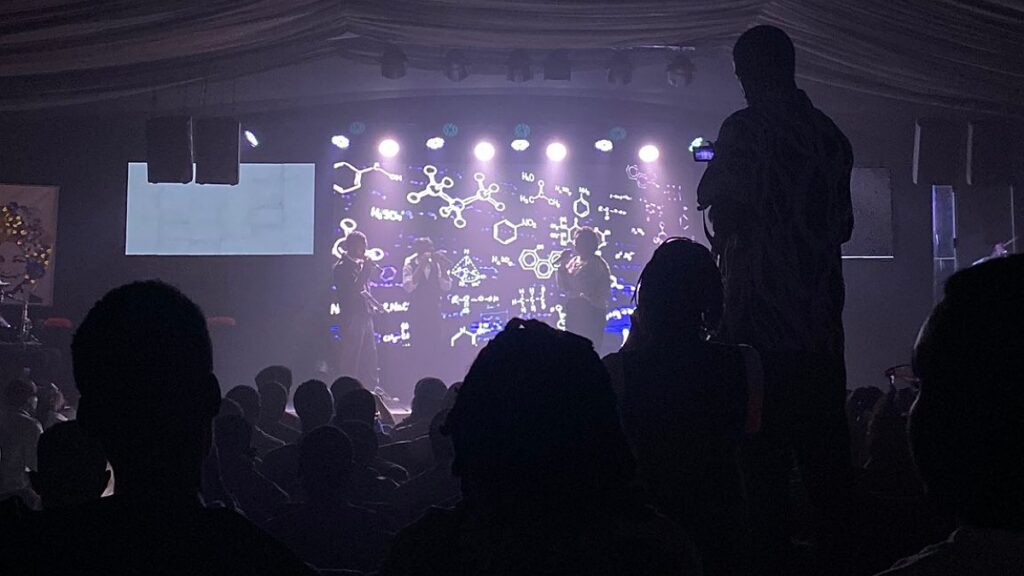Sal Ly’s Froville: A Night of Music, Faith, and Healing
On a vibrant March evening, excitement buzzed through the city of Jos, drawing a crowd eager for something beyond just music.
That something was Froville.
With anticipation in the air, a crowd—90% of them young people—gathered to witness the debut of Sal Ly’s event.
More than that, Froville became a space for healing, empowerment, and shared experience.
It was a place where music wasn’t just performed; it was felt.
Sal Ly’s Journey: From ‘Life’ to ‘21’s Fro’
Behind this unforgettable night was an artist whose journey speaks of strength, growth, and purpose.
Born Salamatu Musa, Sal Ly has carved a unique space in Nigeria’s Christian music scene.
Her debut single, Life, produced by OluwaDrumma, introduced audiences to her heartfelt storytelling and deep-rooted faith.
But it was her latest album, 21’s Fro—released under Energize Music on September 20, 2024—that cemented her as an artist to watch.
A bold fusion of traditional gospel and contemporary Afrobeat rhythms, the album climbed to #38 on the Apple Music Chart by September 29, 2024.
It speaks to faith, growth, and overcoming adversity—themes that resonated deeply with the audience that night.
A Celebration of Women, Faith, and Culture
With this strong musical base, Froville became more than a concert.
It evolved into a celebration of faith, culture, and women’s voices.
The energy in the venue was electric as young people—many experiencing Sal Ly live for the first time—buzzed with excitement.
When she took the stage, it was clear this was more than a performance.

With a voice both commanding and intimate, she led the crowd through the emotional landscape of her music, touching on faith, church experiences, and personal healing.
The Power of Music: Healing from Church Hurts
Beyond the music, Sal Ly’s songs have a deeper purpose—to bring healing through storytelling.
The setlist itself was a journey.
Tracks like Deliver Me carried infectious energy, while Translucent felt like a confession—an honest reflection on growth and self-acceptance.
Yet, beyond the music, it was the moments in between that made the night truly special.
Between songs, Sal Ly spoke candidly about growing up in the church, navigating faith, and overcoming church-related struggles.
She addressed the disappointments and misunderstandings that sometimes push people away from faith, but also highlighted the healing power of community and music.
When she performed Take Me Back, a song about reconnecting with faith after doubt, the response wasn’t just cheers—it was pure emotion.
Hands lifted in worship, eyes closed in deep reflection, as the music resonated deeply.
In that moment, the room became more than an audience; it transformed into a shared spiritual experience.
Shime Ahua and Vblaiz: The Perfect Accompaniments
Sal Ly’s message of hope and renewal was amplified by the presence of two incredible artists—Shime Ahua and Vblaiz.
Sal Ly wasn’t alone in creating this atmosphere of healing and celebration.
Shime Ahua and Vblaiz took the stage alongside her, enriching the night with their unique sounds.

Shime Ahua delivered a soulful blend of gospel and traditional melodies, forging a deep connection with the audience.
Vblaiz, on the other hand, brought high-energy gospel fused with Afro-pop, sending the crowd into joyful movement and celebration.
Their collaborations with Sal Ly weren’t just musical; more importantly, they shared a common purpose: using music as a tool for empowerment and spiritual renewal.
A Night to Remember
As the night came to a close, one thing was certain.
This was more than just an event; it was a moment in history for many.
When the final notes faded and the crowd lingered, reluctant to leave, it was clear—Froville wasn’t just an event; it was an experience.
Sal Ly, Shime Ahua, and Vblaiz delivered more than performances.
They curated a night of transformation—one where music healed and faith was renewed.
In that atmosphere, a new generation of gospel music lovers found a reason to believe again.
Froville wasn’t just about music being present—it was about music making a difference.
(Special thanks to Nuel Umahi for this guest contribution. Edited by Shalom.)
1 Comment
This article is very interesting and informative! The website is a great source of
useful information.